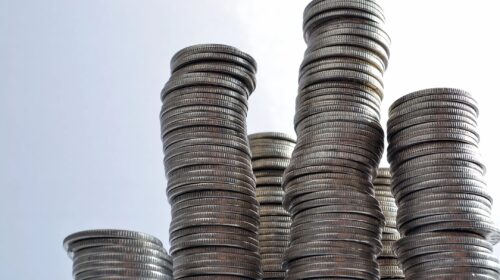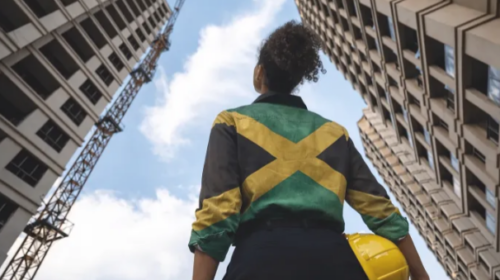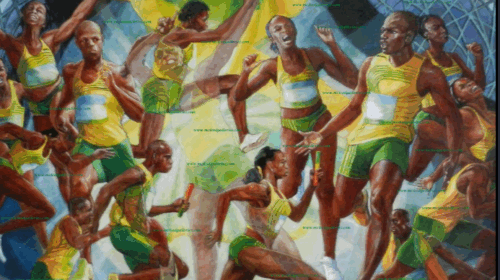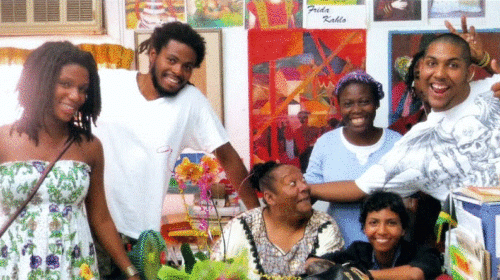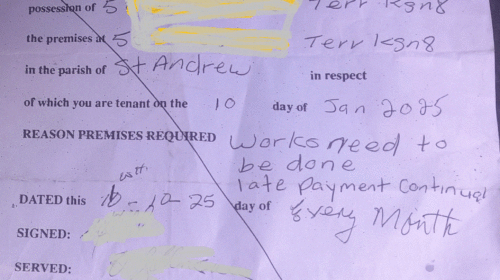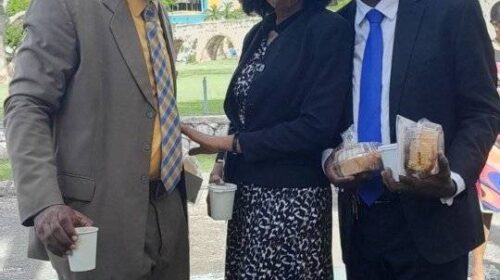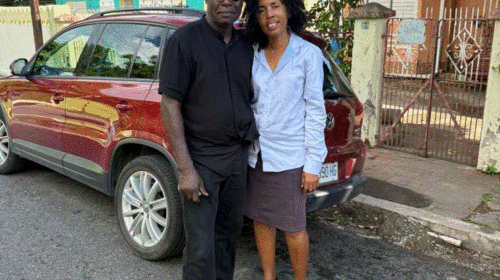Mark Wignal, Columnist – Jamaica Observer
Under the headline ‘Poor quality politician, bad Government’ Mark Wignal, Columnist – Jamaica Observer writes.
HE was bright, handsome, persuasive and a good talker in the boardroom or from the podium.
Those qualities made him the quintessential politician, and when people in Jamaica spoke of him they were all agreed that nothing could hinder his rise to the very top in 10 years or so. All of his qualities converged to one word. Trust.
One day he was approached by a businessman who told him that he wanted to make a donation to the party. The politician was welcoming of the gesture and the funds. The businessman sought from him specific directions on routing the cheque. The politician told him that he wasn’t quite sure which arm of the party or which internal entity was handling the fund-raising.
The businessman asked if it would be a problem in drawing the cheque in the politician’s name. After all, he was sure that the trustworthy politician would take the cheque to party headquarters.
A cheque for $500,000 was written in the politician’s name.
A few months later the businessman stopped off at the party headquarters to talk with friends whom he knew there. While in conversation with one he asked about funding and was told that it was not going as the party bosses would like. He told the friend that he had donated $500,000 and the friend seemed surprised.
Not expecting anything out of the ordinary, the businessman gave him full details of the monetary transaction. The friend went to the treasurer, gave him the information and the treasurer searched his books. No evidence of the receipt of the money, three months after.
The friend returned and told the businessman that the party had indeed received the funds, thanked him but decided to make further investigations. Within days, the bright, handsome, persuasive, smooth-talking politician was hauled over the coals by the party leader and the budding political career came to an abrupt end.
A broke politician is a danger
One party leader is on record telling his young charges, ‘Get your financial house in order before you enter politics.’
An MP takes home just under $300,000 per month. That would seem a lot to many Jamaicans, especially the unemployed, the underemployed and those women struggling on minimum wage plus five per cent.
If the MP does not have an independent source of income which will put say, an additional $300,000 in his pocket, he is dead in the water.
Once an election is won, especially those mapped out on lofty, empty promises, $300,000 cannot pay the entry fee into his constituency. What that ‘poor’ MP is forced to desire is a junior post in one of the key ministries where ‘hustling’ is the norm and contracts are always being signed.
I am no politician, and it is difficult for me to enter the places I love to visit — depressed, inner-city communities. The hands are always out.
Years ago, a well-known politician (who no longer speaks to me because of my criticism of him) told me that he was afraid to visit his garrison too regularly because even a visit for a few hours became an exercise in pure welfare. School shoes needed, books, lunch money, zinc for the roof, and the list goes on.
The political culture is directly derived from the socioeconomic realities. The people want better in their lives, so the politicians promise them better. The election is won and the financially poor MP has to begin thinking about his own life ‘subsisting’ on under $300,000 per month.
If he takes a journalist to lunch, that’s at least $5,000. He needs to attach himself to a hustling ministry where he can possibly pick up an extra $200,000 per month or, if he is lucky and is at the table when a big contract is signed, he can extend his hands beneath the table and hope that there are not too many other hands interfering with his ‘hustling’.
A politician needs to be, if not rich, then at the very least, financially solvent, meaning, he has a steady income from his own profession or investments. There is, of course, never a guarantee that a rich politician will not desire the people’s money, but a rich man feels a certain ‘comfort’ in hustling many millions than in looking under the table for an extra $100,000.
The extent to which the bigger percentage of our politicians are in it for much more than the ‘privilege’ of serving the people will always determine the rate at which party political pursuits descend into little less than pure thievery.
Many politicians love elections because Jamaica basically has no laws on party financing. During election campaigns, many caretakers/MPs collect mostly cash, but also cheques, and there is no guarantee that those funds will be used for party purposes.
If an election campaign is finished, the politician has won (becomes an MP) and he finds himself with say $3 million left, where do you think those funds will go? Straight into his pocket!
In America he could be jailed for that. Not so in Jamaica.
Wray and Nephew and its bottles
Only few of us can remember when supermarkets packed our food and grocery items in paper bags.
Now, we are modern and are forced to live with the disaster known locally as ‘scandal’ bags — those thin plastic bags that will be with us, buried somewhere or cluttering up our beaches for the next hundred years or so.
Many of our glass bottles in which alcohol is sold are returnable and the ones we are most familiar with are beer bottles. The biggest-selling liquor in Jamaica is Wray and Nephew white rum, but guess what, the perfectly good bottles are not returnable.
Why is this so?
Many bar owners have complained to me about the huge mounds of white rum bottles (along with Appleton red), that is, the quart (750ml) and the Q (200ml) stored behind their bars, providing homes for rats and roaches.
I must confess that I have written this article almost as an afterthought, hence at the time of writing (Thursday evening) I did not have the time to call Wray and Nephew and determine why this is so.
It makes perfectly good sense to reuse these bottles which are easy to sterilise.
In addition, it makes no sense to force poor bar owners into using their premises to store a perfectly good glass product.
What about the high energy bill in manufacturing those bottles? Is the bottle manufacturing plant separate from the bottling section, and is it at all possible that to maintain viability of the bottle manufacturing, a certain quantity output per month must be guaranteed?
I would love to hear some answers from everyone’s favourite rum company.
observemark@gmail.com
SOURCE: http://www.jamaicaobserver.com/columns/Poor-quality-politician–bad-Government_11549484
Author Profile
- ... refers to representatives of entities such as embassies, entertainment industry, creative force whose submitted work gets published on this site. Views expressed here may not necessarily represent those of the owner of this site, but are being published in the interest of the wider public. Link me here
Latest entries
 AdvertorialMarch 1, 2026Daily reads on www.antheamcgibbon.com as @ 1 March 2026
AdvertorialMarch 1, 2026Daily reads on www.antheamcgibbon.com as @ 1 March 2026 AdvertorialFebruary 1, 2026Daily reads on www.antheamcgibbon.com as @ 1 February 2026
AdvertorialFebruary 1, 2026Daily reads on www.antheamcgibbon.com as @ 1 February 2026 AdvertorialJanuary 21, 2026Documents assistance
AdvertorialJanuary 21, 2026Documents assistance AdvertorialJanuary 1, 2026Daily reads on www.antheamcgibbon.com as @ 1 January 2026
AdvertorialJanuary 1, 2026Daily reads on www.antheamcgibbon.com as @ 1 January 2026

